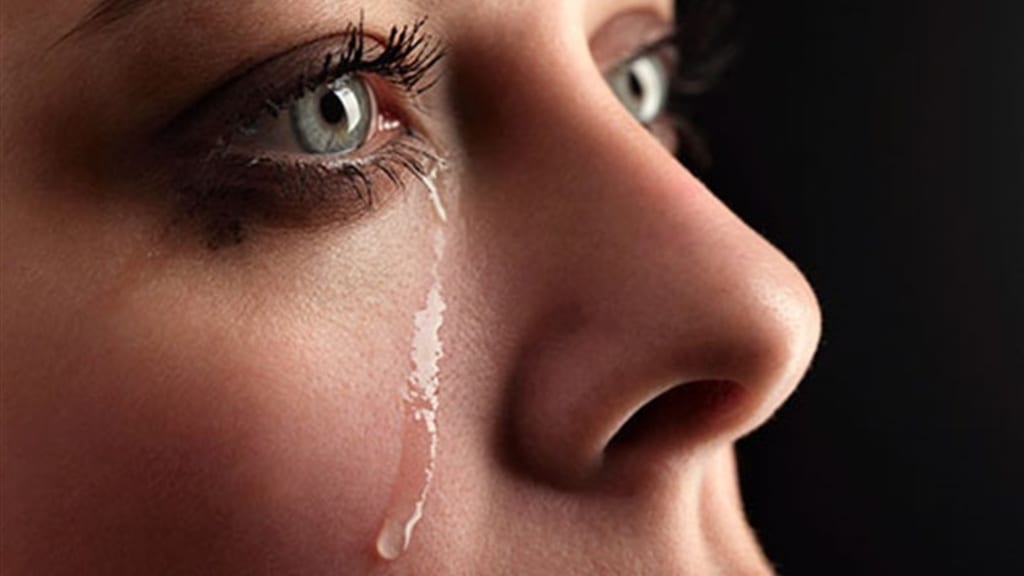Emotional Abuse Is Common, So Why Isn't It Taken Seriously?
In June of 2018 actress, model, and cosplayer Chloe Dykstra alleged abuse from an unnamed former boyfriend she had a long term relationship with in her early twenties.

And though these allegations were mostly met with an out pour of support, many people believe Chloe Dykstra was never abused at all. Even though she mentions sexual abuse as part of the torment her former partner put her through, most of the other allegations are emotional rather than physical. Many people seem to be under the assumption that since Chloe Dykstra was never hit, then she never actually experienced any abuse.
Emotional abuse, also referred to as psychological abuse, is a form of abuse that can consist of verbal attacks, constant criticism, forced isolation, gaslighting, or intimidation. Emotional abuse is the most common form of violence experienced by women and children. It can lead to anxiety, chronic depression, or even PTSD. Since emotional abuse is so common and can leave a lasting psychological effect on its victims, why isn’t it taken as seriously as other forms of abuse?
Many deemed Chloe Dykstra’s former relationship simply as “toxic,” instead of genuinely abusive. But where is the line between toxic and abusive? Dykstra recounts alienation from loved ones, harsh demands, and fear of retribution if she didn’t agree to everything he wanted. Many victims lists these as early predecessors of physical abuse. So since both forms of abuse have a lot in common and both most definitely leave scars, albeit one physical and one metaphysical, why does it take a woman being beaten to an inch of her life to be taken seriously? Well, it shouldn’t.
The skepticism surrounding the abusiveness of Chloe Dykstra’s ex is the reason many don’t seek help till it’s too late. The common misconception that emotional abuse is not valid partnered with being gaslighted by your partner can lead victims to question the seriousness of their abuse therefore hesitant to seek help. Abusers are known to escalate their actions over time. What started out as isolation, frequent spouts of verbal attacks, and gaslighting can soon turn into beatings, strangulation and in the most serious cases, murder. Now I am in no way alleging that Chloe Dykstra’s ex would have ended up murdering her, but as a society we tend to ignore early signs and only care about people when it’s too late. It would be way more effective, for current and future victims, if we took them seriously before they end up seriously injured or dead.
To deny the validity of Chloe Dykstra’s abuse goes deeper than just doing a disservice to Chloe herself. Oftentimes, this victim downplaying teaches youth to ignore warning signs of abuse. This also poses a threat to current and future victims if their abuse is treated as not being serious enough. At the forefront, this may seem like a sad tale of a relationship gone wrong, but in reality it adds to a much needed discussion about abuse. Unfortunately, that discussion too often turns into belittling abuse victims and making it more difficult for them to come forward.
No matter if you believe Chloe or not, their comes a time when openly questioning the allegations of a victim becomes dangerous. Not just for them but for everyone who has, does, and will experience abuse. You do not have to openly hate someone who has been accused of abuse to be supportive of those who have experienced it. Coming out of the woodworks calling an abuse victim a liar is dangerous, and has the potential to be deadly. I applaud Chloe Dykstra for being brave enough to publicly recount her abuse, as many victims will live in the shadows, feeling unable to escape or speak up. When someone with a public platform speaks of their experiences, it gives hope to those who may have not had it before. When we open up the discussion of abuse, victims deserve to know people are supportive and sympathetic towards them, not hostile and judgmental. My point is, please be mindful when discussing something as serious as abuse online. It goes deeper than you think.
About the Creator
Sydney Lovell
Freelance writer of short stories, articles, opinion pieces, and personal essays. I mostly cover topics relating to chronic illness, mental health, LGBTQ+ themes, and women's issues.






Comments
There are no comments for this story
Be the first to respond and start the conversation.